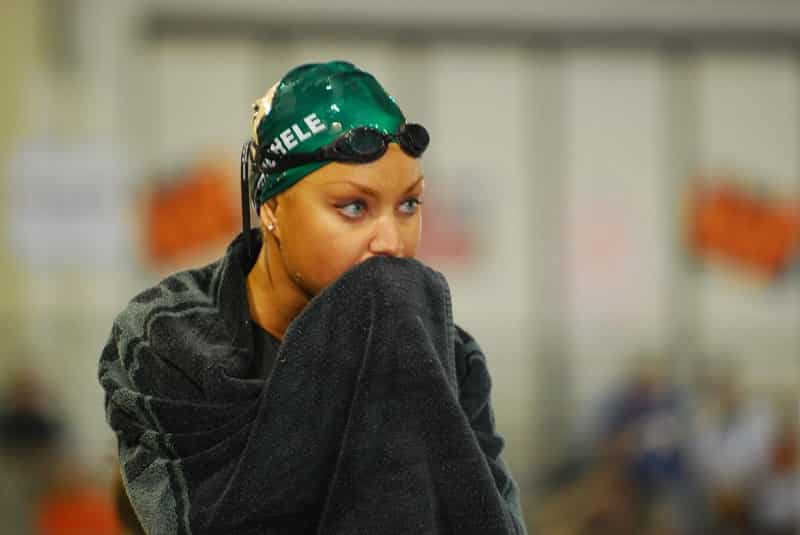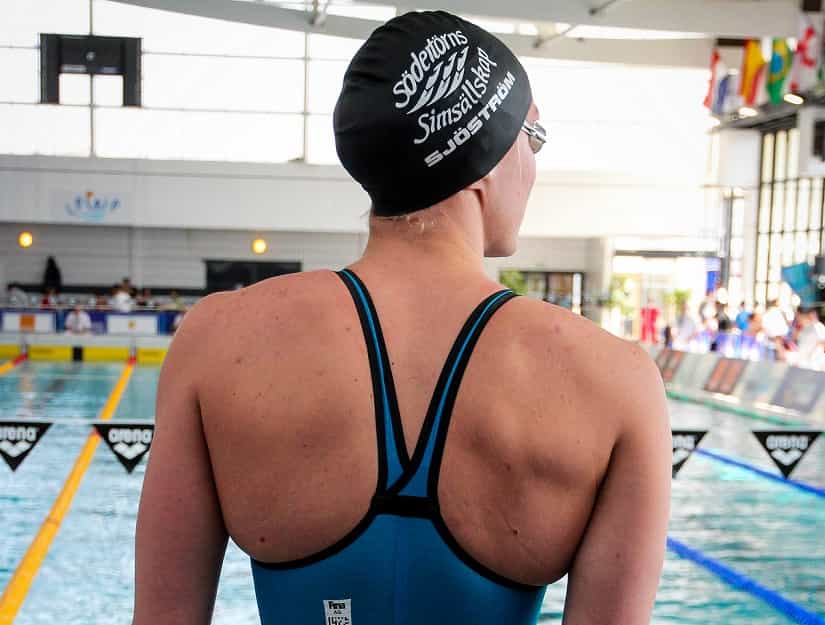While most swimmers and coaches understand that mental training can be effective, there is still not a lot of swimmers who work on it. Here is just how little time you can invest into mental training to see faster swimming.
The thing that separates truly elite swimmers from the rest is rarely a physical gift or talent.
More often than not, it comes down to who can manage their stress and anxiety in the moments before the big race. Or those who are able to better face resilience.
In other words, it is generally the swimmer who is better mentally prepared to unleash a performance when it matters most that excels.
And while we hear a lot about the necessity of talent, and the way that it lackadaisically tries to explain high performance as some sort of mystical or God-given ability, in reality talent is not enough if you want to achieve excellence in the water.
Not by a long shot.
If you want to get down on some faster performances, it’s time to unleash some mental training skills for swimmers.
Here’s more on how it works.
The Research on Mental Training for Swimmers
To get a swimmer headed towards the peak of their abilities requires specific mental skills and habits that will then allow them to make the most of their physical skills.
After interviewing a group of 10 American Olympians across various sports, researchers found that they held a common set of characteristics and mental qualities:
- An ability to focus and cope in the face of adversity.
- They were found to be highly motivated intrinsically (in other words, they found joy and satisfaction in the pursuit of the goal and were able to motivate themselves).
- Set up pre-race and pre-workout routines in order to achieve a sense of automaticity with their performances.
- The Olympians had high levels of mental toughness and resilience.
This research, in particular the ability to thrive and bounce back when challenged, whether it is losing, not performing as expected, or being injured, echoes research on a group of “super champions” that has been covered previously on this site.

How Much Mental Training Is Enough?
One common complaint I receive from swimmers and coaches regarding improving their mental training is a lack of time.
After 8-10 sessions in the water, along with a couple dryland sessions, it’s understandable that most athletes and coaches feel like they have little left over to spend on sharpening their mental skills.
See Also: The Coolest Thing That Happens When Swimmers Work on Mental Training
But, as it turns out, you don’t need to allocate a whole ton of time to see tangible results.
This study that found adding regular mental training work to a group of 36 nationally ranked age group swimmers over a 7-week period found performance improvements in the pool, while also significantly impacting the swimmer’s positive psychological profiles.
The athletes did 45-minutes of psychological skills work per week. Training included teaching goal setting, how to use visualization, relaxation and concentrating techniques, as well as teaching the swimmers how to manage their self-talk.
At the end of the 7-week period the swimmers reported improvements in self-esteem, mental toughness, and dispositional optimism.
The Takeaway
There are lots of reasons not to use mental training for swimmers. I hear them all the time:
- I don’t have enough time for more training.
- I tried it once, and it didn’t really work.
- There’s too much stuff to cover, I don’t even know where to start.
- That’s for other, “broken” swimmers.
And so on.
But as the research has shown, it is effective at building resilience (the main indicator of success in the pool and in life), mental toughness, and even self-esteem.
But perhaps most importantly, it doesn’t require a huge commitment of time. As demonstrated just 45-minutes per week can inflict some serious improvement on both your swimming and your overall mindset.
See Also:
The Science Behind Setting Better Goals in the Pool. There is a proven way to set better goals in the water. Here is the science behind setting smarter goals that you are more likely to achieve.
At What Age Should Swimmers Start Mental Training? This was in answer to an email from a newsletter subscriber that many swim parents struggle with. Here is the answer.














